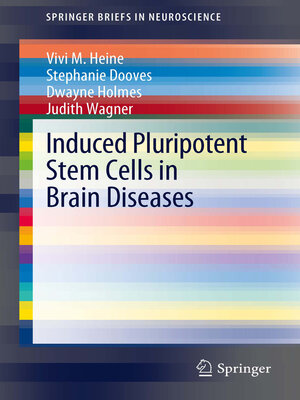Induced Pluripotent Stem Cells in Brain Diseases
ebook ∣ Understanding the Methods, Epigenetic Basis, and Applications for Regenerative Medicine. · SpringerBriefs in Neuroscience
By Vivi M. Heine

Sign up to save your library
With an OverDrive account, you can save your favorite libraries for at-a-glance information about availability. Find out more about OverDrive accounts.
Find this title in Libby, the library reading app by OverDrive.



Search for a digital library with this title
Title found at these libraries:
| Library Name | Distance |
|---|---|
| Loading... |
Brain diseases can have a large impact on patients and society, and treatment is often not available. A new approach in which somatic cells are reprogrammed into induced pluripotent cells (iPS cells) is a significant breakthrough for regenerative medicine. This promises patient-specific tissue for replacement therapies, as well as disease-specific cells for developmental modeling and drug treatment screening. However, this method faces issues of low reprogramming efficiency, and poorly defined criteria for determining the conversion of one cell type to another. Cells contain epigenetic "memories" of what they were that can affect reprogramming. This book discusses the various methods to reprogram cells, the control and determination of cell identity, the epigenetic models that have emerged and the application of iPS cell therapy for brain diseases, in particular Parkinson's disease and Vanishing White Matter (VWM).







